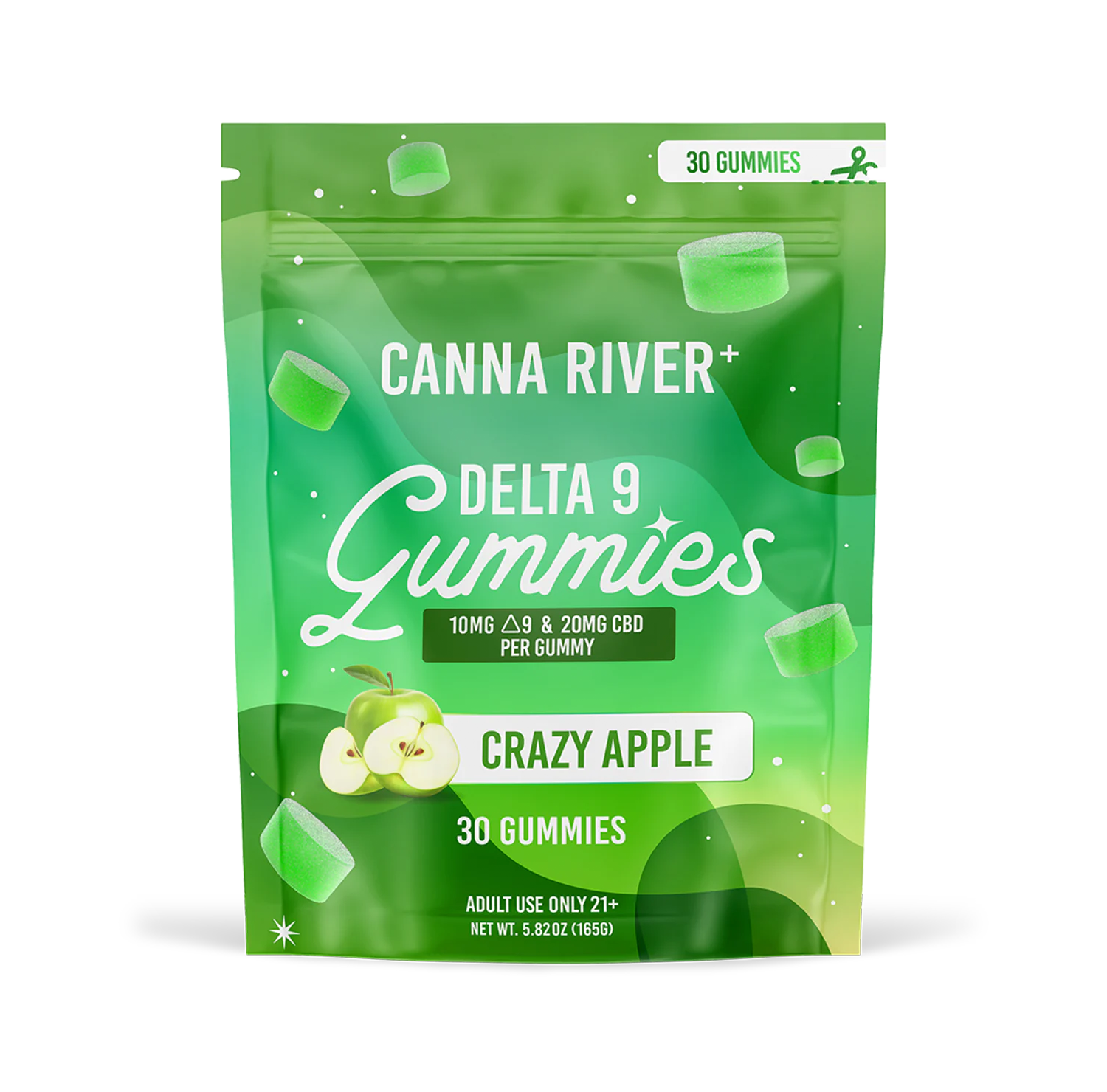Delta 9 THC is one of the most talked-about topics surrounding cannabis, but what is it? Delta 9 is a key compound found in the cannabis plant; this cannabinoid is responsible for the psychoactive effects that typically accompany marijuana use. It can be used for recreational or medicinal purposes.
In this blog post, we’ll delve into delta 9 and explore how it affects the body, its potential benefits, and its associated risks.
Overview of Delta 9 THC

Delta 9 THC is the primary psychoactive component of marijuana. It’s a chemical compound found in cannabis, including both hemp and marijuana plants. It’s responsible for many of the effects associated with using marijuana including relaxation, altered senses, increased appetite, and euphoria. The amount of delta 9 present in any given strain of cannabis depends on genetic and environmental factors, such as soil quality and light exposure.
It interacts with the cannabinoid receptors in the brain and body to produce a wide range of effects. It’s often used recreationally, however, it also has potential medical applications. It can possibly alleviate pain, improve sleep quality, and treat nausea and vomiting related to autoimmune diseases. While D9 can yield positive effects, there are also many risk factors to be aware of. Before using THC products, it’s important to understand their risks, legality, how they compare with other cannabis products, and what to consider when choosing the right product for your needs.
How THC Affects the Body

Delta 9 THC acts on the body’s endocannabinoid and central nervous systems‘, which can lead to both short-term and long-term effects. It binds with CB1 and CB2 cannabinoid receptors to produce a range of effects, and it activates the brain’s reward system, resulting in pleasurable feelings of relaxation and euphoria.
Short-Term Effects
Delta 9 THC causes a wide range of possible psychoactive and physical effects, including intoxication, euphoria, distorted perception, impaired coordination and cognition, increased heart rate, sleepiness, slowed breathing, disconnected thoughts, and panic reactions. It may also produce severe hallucinations and delusions with high doses or misuse.
Long-Term Effects
In daily, long-term users, there’s an increased risk of developing a condition called cannabinoid hyperemesis syndrome, which results in nausea, severe vomiting, dehydration, and abdominal pain. Over time, delta 9 THC may produce long-term changes in the brain’s functions that can include behavioral alterations. Prolonged use of delta 9 THC may result in an increased risk of psychosis—a mental disorder characterized by hallucinations or delusions. Potential risks associated with prolonged use can also include adverse drug interactions, liver toxicity, and reproductive and developmental effects.
Medical Applications of Delta 9 THC

Delta 9 THC, which is found in cannabis plants, may offer potential health benefits including pain relief, management of anxiety and depression symptoms, appetite stimulation, and nausea relief. For these reasons, THC can be helpful for those suffering from medical conditions that cause long-term pain, nausea, and poor appetite such as cancer and AIDS.
Pain Relief
Studies indicate that delta 9 THC may have potential pain-relieving benefits for individuals dealing with long-term medical conditions and symptoms such as chronic non-cancer pain, cancer-related pain, multiple sclerosis, chronic neuropathic pain, fibromyalgia, and arthritis.
Patients who respond to delta 9 THC therapy report a significant improvement in mood and reduction in pain intensity when compared to patients not receiving D9 treatment. The exact mechanisms by which delta 9 THC relieves pain remain unclear, but research suggests that it interacts with endocannabinoid receptors in pain-detecting peripheral nerves, blocking them from sending pain signals to the brain.
Furthermore, there’s evidence to suggest that delta 9 THC can reduce inflammation and oxidative stress—both believed to be contributing factors in many types of acute and chronic pain disorders. For these reasons, THC can be immensely helpful to those suffering from arthritis—a medical condition characterized by inflammation and pain.
Mental Health Benefits
Delta 9 THC, the main active ingredient in cannabis, has been studied for its potential benefits in managing symptoms of mental health conditions, specifically anxiety and depression. Low-to-moderate doses of delta 9 THC are associated with decreased levels of anxiety and improved functioning in people experiencing severe mood disturbances such as those resulting from bipolar disorder, major depressive episodes, post-traumatic stress disorder, or psychological trauma. However, higher doses may have counterproductive effects by increasing feelings of paranoia and anxiety.
Delta 9 THC may increase sociability, which can be beneficial for those suffering from social phobias and social anxiety disorder. However, there’s evidence to suggest that people with social anxiety disorder are more than twice as likely to develop a marijuana dependence than those suffering from other types of anxiety disorders such as panic disorder and generalized anxiety disorder.
D9 may also help to treat sleep disorders and poor sleep quality resulting from various physical and mental health conditions including depression and anxiety. It can produce feelings of relaxation and calmness, helping some to fall asleep more easily and stay asleep for longer durations.
Nausea and Appetite Stimulation
Delta 9 THC is found naturally in the cannabis plant and has been studied for its potential benefits, which include helping to manage nausea and stimulate appetite.
A synthetic form of THC called dronabinol was approved by the FDA for treating chemotherapy-induced nausea and vomiting as well as promoting appetite stimulation. This drug is also used to treat anorexia in HIV and AIDS patients. Studies are investigating the use of cannabis-derived delta 9 THC products, such as those found in medical marijuana, for managing chemotherapy-induced nausea.
Safety and Potential Risks of Delta 9 THC
It’s important to note that while research and randomized clinical trials suggest potential medical benefits from marijuana use, there are adverse effects to be aware of as well, including delusions, paranoia, and hallucinations with high potency levels or doses. Understanding the potential risks, drug interactions, and age restrictions related to delta 9 THC is essential for anyone who’s considering using this substance.
Adverse Effects
Delta 9 THC use can cause unpleasant reactions such as disconnected thoughts, panic, changes in perception, delusions, and even psychosis in extreme cases. Possible short-term side effects include anxiety, dry mouth, increased appetite, increased heart rate, memory loss, impaired coordination, red eyes, delayed reaction time, and sleepiness. Long-term use of delta 9 THC products can potentially damage the liver, kidneys, and heart. Smoked cannabis increases the risk of developing lung cancer. The use of cannabis on a daily basis may lead to cannabinoid hyperemesis syndrome, which is accompanied by severe nausea, vomiting, and gastrointestinal discomfort.
Drug Interactions
Whether taken recreationally or for medical use, delta 9 THC can interact with medications, supplements, and other substances, potentially resulting in serious side effects. For example, using delta 9 THC in combination with some sedative medications increases the risk of slowed breathing. Cannabis is known to interact poorly with certain types of medications including antidepressants, anticonvulsants, anticoagulants, and some pain and anti-anxiety medications. Because of this, we strongly recommend consulting a healthcare professional or a cannabis-friendly clinician before using THC products, especially if you’re taking any medications or dietary supplements.
Potential for Addiction
THC is classified as a controlled substance, meaning it has a high potential for drug abuse. According to the Centers for Disease Control and Prevention, approximately 30% of marijuana users develop cannabis use disorder—one of many types of substance abuse disorders. Some of the signs and symptoms of marijuana addiction and marijuana abuse include repeated failed attempts to stop using cannabis, continuing to use cannabis despite negative consequences, and having to use more cannabis to achieve the desired effects.
Positive Drug Test Results
With laws surrounding cannabis use constantly changing and drug screening common in many workplaces, it’s important to be aware of how long THC remains detectable by different types of drug tests. Unlike CBD and some other cannabinoids, THC is highly detectable and remains in the system for longer than most other substances. For example, THC can show up on a hair drug test as long as one year after use. It remains detectable in urine for 3 to 30 days after use; it’s detectable in blood for 3 hours to 25 days; and it can be detected in saliva up to 2 days after use.
These timeframes are estimates, as there are several factors that affect how long THC remains detectable in the body. These factors include THC potency, frequency of use, amount consumed, body composition, metabolic rate, consumption method, hydration level, and other medications in the body. Products that contain high concentrations of THC are easier to detect and linger longer than low-concentration products. THC accumulation in the system is greater for regular and frequent users than for those who use THC occasionally. THC builds up in fat cells and fatty tissue. As a result, people with high body fat levels and higher BMIs retain THC for longer periods. Individuals with faster metabolic rates are usually able to clear THC from their system faster than those who have slower metabolisms. THC from edibles and topicals tends to linger longer than it does when inhaled. Poor hydration leads to higher concentrations of THC in the system, and some medications can increase concentrations of THC in the blood and urine.
How To Select a Safe Delta 9 THC Product

Not all cannabis products are created equal. When choosing a delta 9 THC product, it’s important to ensure that the information provided is accurate. The best way to do this is to purchase from reputable brands and retailers that have a long track record of providing high-quality products and excellent customer service. Additionally, purchasing from well-respected retailers also ensures legal distribution and compliance with the Agriculture Improvement Act.
Canna River
<p>Powerful Delta 9 THC and Broad Spectrum CBD work in harmony to provide a mellow, yet moving gummy experience. Potentially a great aid for: mood, pain, sleep and stress.</p>
Shop Now
Lab Analysis and Potency
To ensure the information—particularly the ingredients and potency—listed on the label or packaging is accurate, it’s important to purchase products subjected to third-party testing. Additionally, the lab reports should be made easily accessible to you. In other words, they should be easy to obtain online or readily available for viewing upon request if you’re shopping at a brick-and-mortar location. Third-party testing promotes public health and safety by allowing you to verify the potency, safety, and quality of THC products. This not only applies to delta 9 products but also to products containing delta 8 THC, CBD, and other cannabis-derived ingredients.
Potency often varies across different brands and products. Potency testing will ensure you know exactly how much delta 9 THC is present in any given product before you purchase or use it for medicinal or recreational purposes.
Generally, delta 9 THC products are more potent than delta 8 THC and delta 10 products. Some studies suggest that D8 and D10 can potentially offer health benefits comparable to those of D9 but with fewer and milder psychoactive effects.
Packaging and Labeling
Packaging and labeling are important considerations when selecting a safe delta 9 THC product. In most states, regulations stipulate how products containing delta 9 THC should be packaged. Child-resistant packaging is typically used for edibles to protect young children from ingesting them accidentally. However, even if your edibles come in child-resistant packaging, both opened and unopened edibles should be stored securely out of the reach of children and away from pets.
The potency or concentration of delta 9 THC concerning the total weight of the product must also be clearly featured on product labels according to industry standards set by governing bodies such as the FDA. Typically, industrial hemp products don’t exceed 0.3% delta 9 THC content, whereas those derived from cannabis can contain much higher percentages, depending on strain and genetic composition.
Age Verification Checks
Given the effects of delta 9 THC, it’s paramount that age restrictions are in place to ensure the safe use of these products. Age verification checks involve verifying a buyer’s identity and age at the time of purchase of cannabis products or hemp-derived delta 9 THC products.
To ensure optimal safety, it’s crucial for individuals who purchase these products to provide proof of their legal age—either in person or through digital verification—before any sale can be completed. This helps to make sure minors don’t have access to cannabis and hemp-derived delta 9 THC products, which can lead to harmful short-term and long-term consequences if misused.
Legal Regulation
When selecting a delta 9, delta 8 THC, or other cannabis product, it’s important to only purchase products that are legally regulated. This will ensure that no heavy metals, fillers, or other undesirable or potentially hazardous ingredients are present in the product. In most cases, medical marijuana and legal cannabis products are tested by third-party labs to ensure public health and safety. While THC isn’t legal on a federal level, products purchased from respectable retailers are more likely to comply with state regulations.
Hemp-Derived Delta 9 vs. Cannabis-Derived Delta 9
There’s an important distinction between hemp-derived D9 THC and cannabis-derived D9 THC as far as legality is concerned, with varying regulations in place based on the source of the cannabinoid.
Differences Between Hemp- and Cannabis-Derived Delta 9 THC
Delta 9 THC is the primary psychoactive component of both cannabis and hemp plants. Hemp-derived delta 9 THC products have become increasingly popular over recent years due to their perceived benefits, but there are key differences between these two types of delta 9 THC.
Hemp contains significantly lower amounts of delta 9 THC than cannabis, with industrial hemp extract and products being legally defined as containing 0.3% or less D9. In comparison, certain seeds, root stalks, and other parts of the marijuana plant can contain up to 30% or more delta 9.
As a result, some hemp-based products are federally legal as long as they don’t exceed that 0.3% threshold, while cannabis remains federally classified with other illegal, Schedule I, controlled substances. Consequently, states have different rules for the level of access people should have to each type of D9 and what forms they can be purchased in.
Legal Status and Regulations
Delta 9 THC is federally illegal across every state in the United States. However, the 2018 Farm Bill created a loophole that allows for certain forms of hemp-derived delta 9 THC to be legally sold and consumed. Hemp-derived delta 9 THC products have minimal requirements for open sale, though each state has its own laws regarding the legality of THC-containing products. Some states may have legal cannabis and delta 9 THC derivatives, but this varies by state. Due to differences in potency and safety, it can be difficult to make distinctions between hemp-derived and cannabis-derived delta 9 THC, leading to challenges in regulations.
Regulatory Challenges
Regulating delta 9 THC products is a difficult task, particularly when it comes to distinguishing between hemp- and cannabis-derived delta 9 THC. The lab analysis of D9 THC products considers potency, the presence of impurities, and whether the delta 9 present is natural or converted from CBD.
Cannabis sits under stricter regulations than industrial hemp due to its intoxicating properties. Regulated D9 edible products also have a serving size limit of no more than 10 milligrams per serving and a 100-milligram total limit for ingestion at one time.
Differences in Potency and Safety
The most noteworthy difference between hemp- and cannabis-derived delta 9 THC is potency. As mentioned above, cannabis plants have a much higher concentration of THC, the main psychoactive component of delta 9 THC products, than hemp plants have.
As per regulations, hemp must contain less than 0.3% of THC, compared to around 15 to 30% for some cannabis strains, which are typically used to make CBD oils, tinctures, and edibles.
In addition to differences in potency, the sourcing of delta 9 THC is also important—whether it’s derived naturally from the plant or converted synthetically using other cannabinoids such as CBD.
Lab analysis takes both of these factors into account when determining the safety of a product, and only those with accurate levels of active compounds that are within legally specified limits are certified.
Delta 9 THC vs. Delta 8 THC
Delta 8 THC has become increasingly popular because of its milder effects compared to delta 9. Let’s take a closer look at the differences and similarities between these two substances.
Abundance
Delta 8 THC is another type of cannabinoid. Delta 9 THC is found in both the cannabis indica and cannabis sativa plants, however, delta 8 THC is primarily found in the cannabis sativa plant. Cannabis plants contain significant amounts of D9 but limited quantities of delta 8 THC. Since D8 only occurs naturally in small amounts, it’s often manufactured from CBD.
Chemical Structure
Delta 9 and delta 8 THC differ in terms of their chemical structures. D9 THC has a double bond on the ninth carbon chain, whereas delta 8 THC has a double bond on the eighth carbon chain. This structural difference impacts how these substances interact with the body and the effects they produce.
Potency and Effects
While both cannabinoids produce mind-altering and intoxicating effects, delta 8 THC is less potent than D9. Delta 8 THC doesn’t bond as strongly with CB1 receptors as delta 9 does; as a result, D8 is less psychoactive than D9. Both substances have the potential to provide relief from pain, however, delta 8 THC is associated with lower levels of paranoia, panic, and anxiety than delta 9.
Legality
Unlike D9, delta 8 THC isn’t classified as a controlled substance or regulated on a federal level. Since it’s typically sourced from hemp-derived CBD, delta 8 THC is federally legal. However, while it’s legal in many states, it’s not legal in all states, so it’s important to be aware of local and state regulations before buying or using delta 8 THC products.
Potential for Abuse
While delta 8 THC offers milder effects than D9, it’s important to note that it does still produce mind-altering effects. Additionally, delta 8 THC carries the same potential risk for abuse, addiction, and development of hyperemesis syndrome.
THC vs. CBD
THC and CBD are two major cannabinoids found in cannabis sativa plants. Unlike other minor cannabinoids, these substances can produce powerful effects. However, some notable differences set the two apart.
Effects on the Body
One of the main differences between THC and CBD is that THC produces mind-altering effects, whereas CBD doesn’t. As a result, THC is subject to stricter laws and regulations than CBD. THC has a stronger bonding affinity for CB1 receptors than CBD, which is why THC is psychotropic and CBD isn’t.
Potential Side Effects
Unlike THC, which has a lengthy list of possible side effects that range from minor to severe, CBD has minimal side effects. CBD may cause minor side effects—such as dry mouth and fatigue—but it’s generally well-tolerated and any effects experienced are usually mild. Additionally, THC has a high potential for addiction, whereas CBD isn’t associated with any known risks for dependency, abuse, or addiction, making it a safer choice for many users.
Medical Use
CBD and THC are typically present in medical cannabis and both cannabinoids have potential health benefits. Both have anti-inflammatory properties and can help manage acute and chronic pain. They can work synergistically to create the Entourage Effect—a phenomenon in which the compounds enhance one another’s beneficial effects, resulting in an enhanced range of benefits. Unlike its psychoactive counterpart, CBD can help minimize symptoms of anxiety, depression, and epilepsy.
Drug Test Detectability
While THC is highly detectable and lingers long in the body, CBD alone usually won’t show up on a drug test. However, CBD products that contain even traces of THC will likely result in testing positive on a drug screening. If you’re concerned about passing a drug screen, make sure the product you choose only contains CBD and doesn’t contain THC. This will improve your chances of not testing positive.
Legality
CBD is legal on a federal level as long as it’s derived from hemp and contains less than 0.3% THC. However, marijuana-derived CBD is classified along with THC as an illegal, Schedule I substance. On a state level, the legality of CBD varies from one state to another. To ensure you act within legal limits, it’s important to be aware of local and state laws surrounding cannabis products in your area.
Other Forms of THC to Explore
FAQ
What is delta 9 THC?
Delta 9 THC is the main psychoactive component found in cannabis plants and products made from them. It’s responsible for the “high” feeling that results from marijuana use. It has potential health benefits as well as possible negative effects.
How does delta 9 THC work?
Delta 9 THC works by binding to cannabinoid receptors located throughout the body, affecting various functions such as memory, mood, appetite, pain control, and pleasure. Its bond with CB1 receptors produces mind-altering and pain-regulating effects while its bond with CB2 receptors produces anti-inflammatory effects and immune responses.
Is delta 9 THC safe?
More research is needed on the long-term effects of using cannabis-derived products with high levels of delta 9 THC, however, short-term use appears to be generally safe for most people when taken in normal doses recommended by professionals or manufacturers. It’s important to note that D9 may interact with medications and supplements, so be sure to consult with your doctor or healthcare provider before using products that contain D9.
Are there any side effects associated with taking delta 9 THC?
Some potential side effects can include dizziness, fatigue, changes in appetite, weight gain/loss. There is also an increased risk for certain mental health symptoms such as paranoia, hallucinations, and anxiety.
How does medical cannabis differ from recreational marijuana?
Medical cannabis can be used to treat chronic pain and other symptoms of various conditions. It differs from recreational cannabis in that it has a lower concentration of THC, making it less likely to produce mild-altering effects.
How much THC should I use?
The amount of THC you should use depends on several factors including your desired effects, potency, strain, body weight, etc. We strongly suggest using THC products according to the manufacturer’s directions. It’s also a good idea to consult a healthcare professional to ensure safe use.
Is D9 THC legal?
According to federal law, delta 9 is illegal. It’s classified as a Schedule I drug with a high potential for abuse. Although it’s illegal on a federal level, the use of D9 products is legal in some states.
Where can I buy cannabis?
Where you can purchase cannabis depends on where you live and what type of cannabis product you’re looking for. With a qualifying condition and a prescription from your doctor, you can typically purchase cannabis for medical use at a dispensary. Additionally, legal cannabis is available for sale at local dispensaries and from online retailers. Online retailers offer a diverse range of hemp and other cannabis-derived products—just make sure these substances are legal in your state before making a purchase.
What is the Agriculture Improvement Act?
Also known as the Farm Bill of 2018, this bill legalized hemp products that have a THC concentration of 0.3% or less. Under this bill, many hemp-derived products are federally legal and are no longer classified as Schedule I drugs.
Conclusion
Delta 9 THC is a psychoactive compound that has a range of potential therapeutic benefits. While D9 can provide health benefits and serve some medical purposes, it also carries certain risks.
When using D9, it’s important to select products that are sold by reputable retailers and subjected to third-party testing. Weigh the pros and cons of D9 THC and consult your doctor to determine if cannabis products are a good choice for your specific needs.






